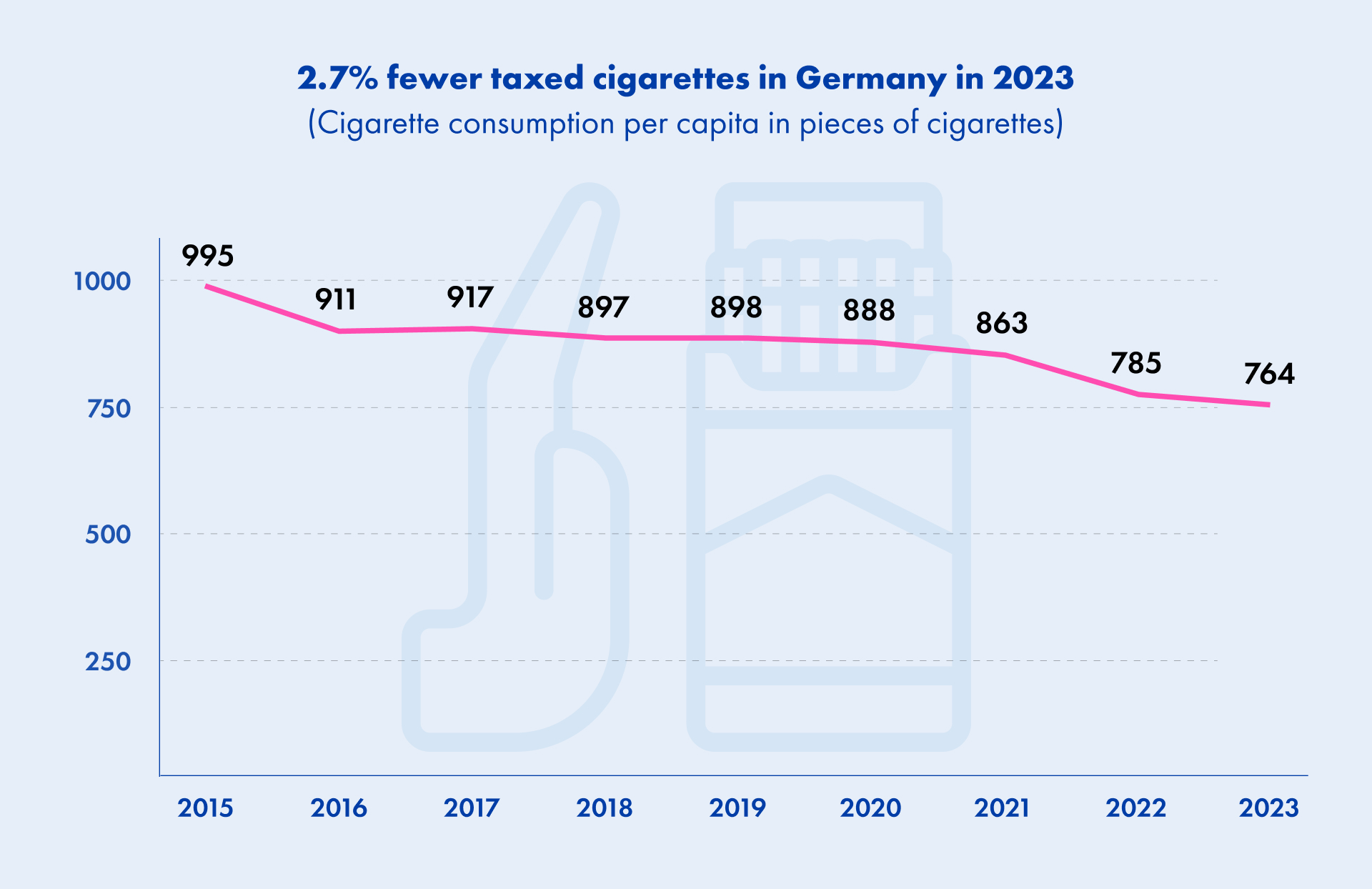Issue #154
Guten Morgen! After surviving the first month of 2024, we are gearing up for the second one. In this week’s Krautshell edition, we have intel on various topics such as France and Germany’s trust issues with generative AI, the German government’s plans for safety and modernization by reducing bureaucracy and improving digitization, Germany’s preparation for the election year, including the European Parliament showdown and state elections, and the new post-Brexit checks on imports that have come into force. Last but not least, Anna shares the WOOM, giving insights into the budget allocation. Happy Reading! Wishing you a restful weekend and a productive start to the coming week! Anna Szilvia WHAT TO WATCH THIS WEEK: Germany and France dance a twist to the AI Act With their joint letter to the Spanish Council Presidency in November, Germany and France had already placed themselves in the corner of the critics of the AI law with their criticism of a minimum regulation of generative AI and, despite political agreement in the trilogue, there was recently a threat of a momentous abstention on the part of the governments. However, a coalition of enlightened scientists, think tanks and companies – not entirely without reason – felt that they were turning into a dead end with no possibility of turning back and have sent a strong letter to the German government urgently and emphatically calling for approval of the AI Act. The motley crew of experts argue that consensus in this legislative period is as important as a sturdy umbrella in a sudden downpour – essential to legally protect companies and set standards for trustworthy AI. Despite concerns about public spying on biometric data, they emphasize the dangers of a patchwork of national regulations and the urgent need to forge their own rules to avoid being at the mercy of the whims of developments in China and the US. This warning appears to have been successful, as the German government now wants to approve the AI law after all. In France, criticism of the EU’s AI law came from the very top: Emmanuel Macron has been less than restrained in expressing his dislike of the planned law. However, if France does not support the act, this would also be a low blow for French Internal Market Commissioner Thierry Breton, who has campaigned for this law as if it were his own child. And lo and behold: no sooner has the approval of the embattled German government been broadcast to the world via social media than the well-informed circles in Brussels are whispering that France will now give its blessing to the AI Act after all. REGULATORY INSIGHTS: German government with lame plans for rapid change So, word on the street is that a document has busted out of government circles, laying bare the grand plans of the German government until the end of their term. Titled “Safety and Modernization,” the Chancellery neatly condenses its very own to-do list into eight pages. And boy, are they all about speed. They’re on a mission to crank up the turbo for the second half of their term and want to make things happen faster than a German on their way to a discount sausage sale. They’re not just about doing things, they’re about doing them at “Germany-speed,” whatever that means. Despite all the talk about speed, the very topics that would ensure greater speed and efficiency have not made it onto the list of priorities: Digitization and bureaucracy reduction. They also want to make progress on the topic of healthcare and think they can achieve this by reforming hospitals, of all things. It’s a prankster who expects solutions with even more bureaucracy as a result. And in the area of migration/integration, the federal government wants to improve the organization of residence in Germany and – something that is apparently not considered normal but innovative – give asylum seekers the opportunity to earn a living through … work! And no sooner is a war raging on our doorstep and conflicts escalate around the world, securing critical infrastructure is put on the agenda with an “umbrella law”. After all, what would modernization be without a stable roof over your head? It’s the government’s way of saying, “We’ve got you covered, Germany. Literally.” THE BIG PICTURE: Recipes for Europe from German parties in crisis Germany is gearing up for an election year, featuring the European Parliament showdown and a trio of state elections, where the far-right AfD party is eyeing a top-notch performance. Amidst this backdrop, the SPD and the FDP have unveiled their election playbooks for the European Parliament elections. Despite declining poll numbers, they aim to mobilize their voters and have confirmed their lead candidates. The SPD takes center stage, focusing on a positive narrative of Europe, emphasizing the fight against right-wing extremism and highlighting achievements such as workers’ rights and the minimum wage directive. Meanwhile, the FDP steps into the limelight with a critique of EU overregulation and bans, pointing fingers at the EU Commission, starring Ursula von der Leyen, for cooking up extra bureaucracy. In terms of content, the FDP aims for a stronger EU, particularly in foreign and security policy, advocating for a European Defense Union. The million-dollar question is: will this political spectacle be a box office hit? Will the two governing parties be able to carry the audience away or will they just stick to their tried and tested scripts, celebrating their increasingly unsuccessful brand core instead of presenting new answers to new questions/problems? More of the same does not sound like a good recipe against the growing EU and democracy skepticism of recent years. A meeting late into the night… Debate and discussion after years of silence… It appears the two-year boycott of the Northern Ireland Assembly may be coming to an end. Parties underwent a difficult session to secure the approval to agree on a power-sharing arrangement, with the final announcement not taking place until the early hours of Tuesday morning. There’s still a way to go until all things are official, but if a deal is successful and the Democratic Unionist Party is returned to power, it would mean Northern Ireland would have its first-ever republican First Minister. Across the UK, new post-Brexit checks on food and drink imports have come into force this week. The new rules mean health certificates will be needed on a wide range of EU goods, such as meat, fruit and vegetables. There is some concern that the combination of increased costs on businesses and physical checks will disrupt supply chains and add delays. The Labour Party has said if it wins the election, it will take another look at the checks, but only if it appears businesses, and the wider economy, are struggling. This fits with the Labour Party’s work to win over business, releasing its plan for financial services and restoring economic growth to the country. In a move to keep the markets on side and retain their bid for fiscal responsibility, the Shadow Chancellor (the UK’s Opposition Finance Minister) Rachel Reeves announced Labour would not reintroduce a cap on bankers’ bonuses, which was scrapped by the current government. Reeves instead championed the industry, lauding it as a “successful and thriving financial services industry”. Source: destatis.de Here are three appointments for next week that you should have on your radar: THE BUDGET DOES NOT LIE You might remember November last year when the German Constitutional Court ruled against the reallocation of not-used Corona-instant-support-money for climate action programs – and the government all of a sudden needed to find around 40 billion Euros to plaster the hole. And they did, with minor cuts here and there, collecting money from other entities, cutting some subsidies, and raising some fees, and they somehow managed to stay below the constitutional debt brake of 0.35% of GDP per year. And I applaud for this particular point after years of circumventing this rule with exceptional situations, federal special funds, and crisis declarations (OK, that one was valid). Apart from that, it is a pretty depressing budget. Cuts, cancellation of planned investments, no clear ambition to invest or dedicate the significant funds needed for innovation and infrastructure. The biggest portfolio by far did not receive any cuts, but the biggest increase, compared with 2023: the Ministry for Labour and Social Affairs. Almost 172 billion Euros, over 35% of the federal budget, go into social security: pensions, unemployment insurance, and the Bürgergeld (basic income). It is no wonder that experts predict only 0.6% GDP growth in Germany for 2024 when the global economy is supposed to grow by 2.6%. The governing parties blame the pandemic, the war in Ukraine, and the disturbances in the supply chain. But, maybe, the biggest culprit is the misguided priorities of the current government, as shown in yesterday’s passed budget for 2024. Issue #154


FIRST, SOME SOLID INTEL:
AND WHAT’S UP IN GREAT BRITAIN?
TAKE A BREAK, GIVE YOUR EYES A REST:

LONG STORY SHORT:
OUTLOOK:
When?
What?
February 6th, 2024
Federal Minister of the Interior Faeser opens the new National IT Situation Center in Bonn
February 6th, 2024
Address to the European Parliament plenary session by the President of the European Council and of the European Commission
February 7th-8th, 2024
European Investment Bank Group Forum
WHAT’S ON OUR MINDS:




